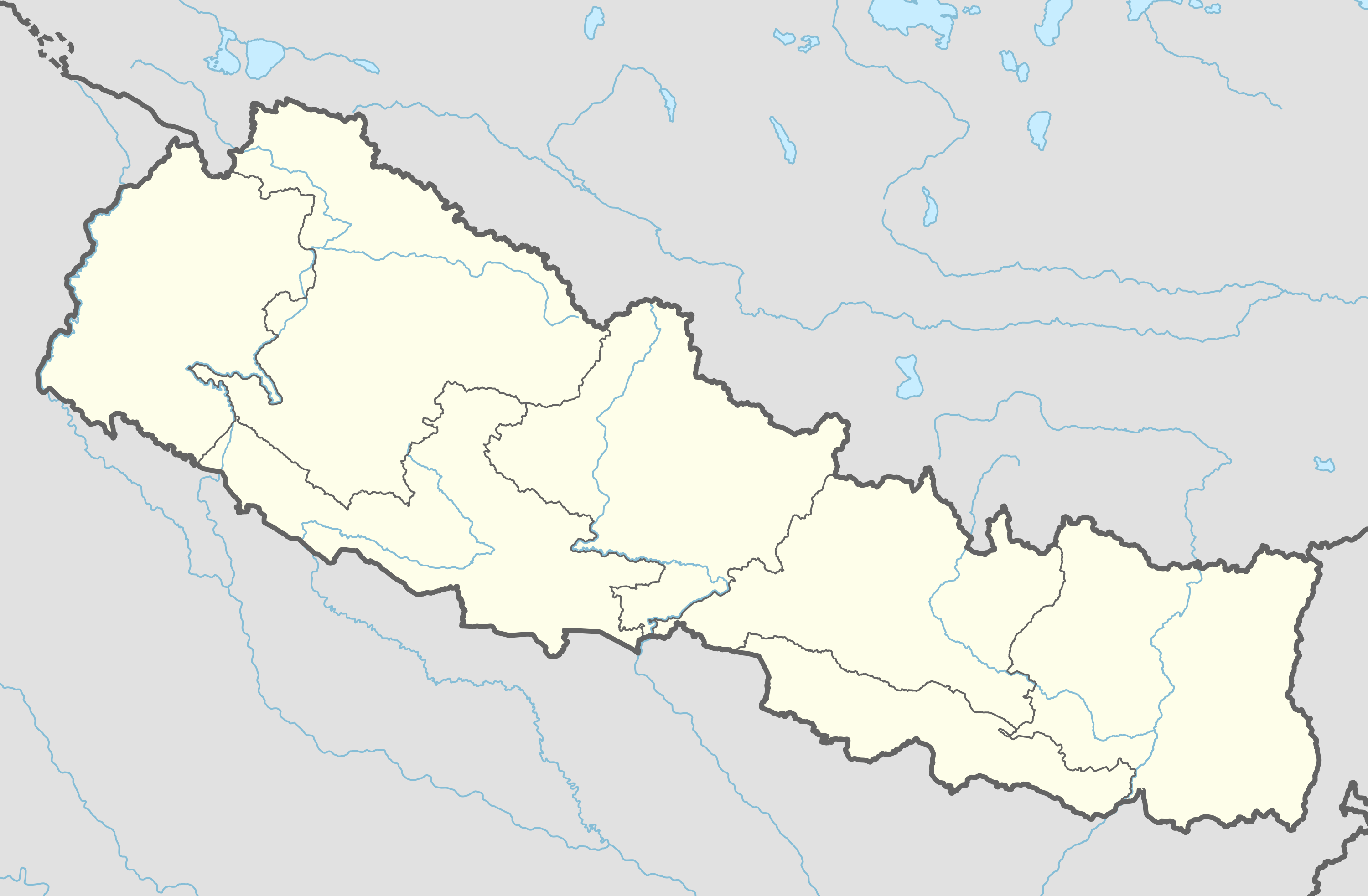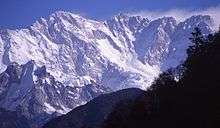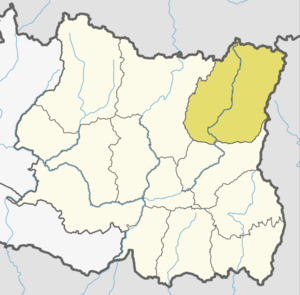Olangchung Gola
| Olangchung Gola ओलाङ्चुङ गोला Walungchung Gola | |
|---|---|
| Village development committee | |
 Olangchung Gola Location in Nepal | |
| Coordinates: 27°40′45″N 87°46′45″E / 27.6792°N 87.7792°ECoordinates: 27°40′45″N 87°46′45″E / 27.6792°N 87.7792°E | |
| Country |
|
| Zone | Mechi Zone |
| District | Taplejung District |
| Population (2011) | |
| • Total | 239 |
| Time zone | UTC+5:45 (Nepal Time) |
| Postal code | 57508 |
| Area code(s) | 024 |
Olangchung Gola (locally as Walung or Holung) is a village development committee in the Himalayas of Taplejung District in the Mechi Zone of north-eastern Nepal. It is located to the north of Tamor River in the mountainous area in the northwest of Taplejung District bordering Tibet, China. Lately the river flowing next to the village is gradually expanding towards the village posing a serious threat of submerging the village.
Olangchung is surrounded by Sikkim to the east and Tibet to the north and hence was once a strategic place between Tibet, Nepal and Sikkim. The Gorkha war between Nepal and Tibet was negotiated in this tiny village. The Chogyal of Sikkim, fearing incarceration by British India, went into hiding here, ready to escape into Tibet, though he was captured later.
Olangchung Gola is the trade hub for surrounding villages such as Yangma, Ghunsa, Khangbachey, Lungthung, Lelep.[1] Gola means "market" in the local language.[1][2] In addition, historically Tipta La the pass connecting the area with Tibet was an important trade route.[3]
People
The Walung people are the indigenous inhabitants of the region around Olangchung Gola.[1] They are descended from Tibetan traders and practice Nyingmapa Buddhism.
At the time of the 1991 Nepal census it had a population of 422 people living in 82 individual households.[4] According to 2011 Nepal census 239 people live in 62 individual households.[5]
References
- 1 2 3 "Walung". National Coalition Against Racial Discrimination (Nepal). Retrieved 2017-02-14.
- ↑ Hattaway, Paul (2004). "Peoples of the Buddhist World: A Christian Prayer Diary". William Carey Library. p. 346. ISBN 9780878083619. Retrieved 2017-02-14.
- ↑ Jackson, John Angelo (2005). "Adventure Travels in the Himalaya". Indus Publishing. ISBN 9788173871757. Retrieved 2017-02-26.
- ↑ "Nepal Census 2001". Nepal's Village Development Committees. Digital Himalaya. Retrieved 19 November 2008.
- ↑ Households and population by village development committees/municipalities., Central Bureau of Statistics, Nepal Archived 2013-09-27 at the Wayback Machine.
Steinmann, B. 1988, Les Marches tibétaines du Népal. Etat, chefferie et société traditionnels à travers le récit d'un notable népalais. Paris, l'Harmattan.
External links

